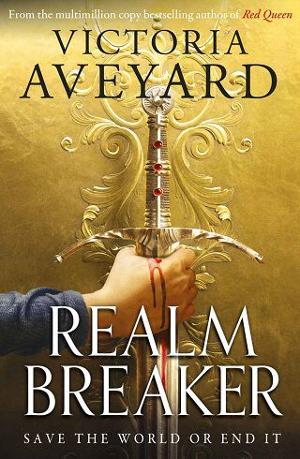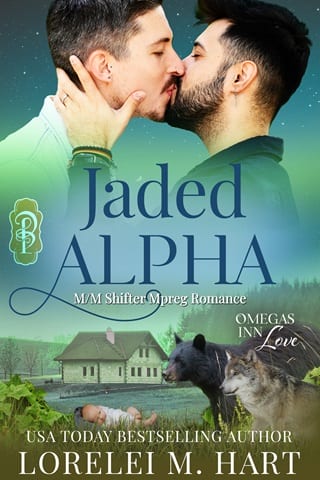29 THE BEAR OF KOVALINN
29
THE BEAR OF KOVALINN
Ridha
The princess of Iona missed the sand mare, but the frigid north would have been a cruel punishment for so loyal a horse. She’d been bred for speed in the Ibalet sands, not trekking through frozen fjords. Ridha set her loose before crossing the Watchful Sea, sailing on the rare Jydi ship bound for trade and not raiding. In frostbitten Ghald, she purchased a stockier, long-haired pony, as well as a musty fur cloak that would serve her better in the wilds of the Jyd.
Though she was Vedera, immune to most discomforts of the mortal world, Ridha did not enjoy being so cold. The Jyd was positively freezing, even though it was only early autumn.
As she sailed the Glorysea, she saw Jydi longboats under the white sail of peace. Ships of trade and travel. Raiders sailed beneath gray sails, iron cold as the winter sky. But Ridha spotted none. It was as the thieves in the tavern had said: no Jydi were raiding. Not rare, she thought as the she rode the rocky coast. Impossible.
Kovalinn sat in the Vyrand, the great, wolf-shaped mountain range that formed the spine of Jyd. Ridha remembered the enclave of her northern cousins from a diplomatic journey in her youth, some centuries before, when she’d accompanied her mother. Domacridhan had been left at home, too young to go with them. He’d been little more than a child then, still growing, and he’d wept on her shoulder before she left.
She sorely wished he could have been with her now, a shield as much as a crutch.
The Jydi mortals were not ignorant of the Vedera like their southern neighbors, and they were far less intrigued by woman carrying weapons. When Ridha passed through villages on her way north, few children of the Jyd balked at her presence. Most were fair, blond or ginger-haired, but the Jyd welcomed all who took up the ax, the shovel, or the sail. Black skin, bronze skin, porcelain, every shade from white to ebony was present in the frigid north, from Ghald to Yrla to Hjorn, in every village and on every farm.
It was the same in Kovalinn.
When she reached the river mouth in the Kova fjord, a Veder was already waiting, stoic as an old oak. She was reedy and tall, wrapped in furs, with skin like glowing topaz, her black-and-silver hair braided into locks tied with fine chain. Ridha did not know her, but raised a hand in greeting, her palm white as the early snow clinging to her eyelashes.
How they knew of her coming, Ridha could easily guess. Mother must have made another sending, this time to the monarch of the snows. She tried not to think of Isibel of Iona, a wisp of magic with silver hair stirring in a phantom wind. Come home. Come home.
Is it an echo or a memory?Ridha could not say.
“I am Ridha of Iona.”
She searched the woman’s face. If Mother has already contacted Kovalinn, this might be for nothing.
The other Veder dipped her brow. “I am Kesar of Salahae, right hand to the Monarch of Kovalinn. He bids you welcome in his lands and is eager to speak with you.”
“As I am eager to speak with him,” Ridha answered.
In the distance, a cold wind blew, stirring up the steady fall of snowflakes. The way up the fjord cleared for an instant, showing a jaw of granite and snowy ground, a waterfall plunging its way to the river and the sea. At its peak, at the crest of a zagging pathway cut into the rock, was Kovalinn. Even from a distance she saw the bears carved into its gate, their fur chipped from black pine.
Beneath her cloak and steel, Ridha shivered. The wind blew again, and the enclave disappeared into the snows.
The great bear was the sigil of Kovalinn, set into her gates, woven into tapestries, carved from towering pines to loom down the length of the great hall. It was also a living guardian. One slept soundly by the seat of the Monarch, its massive paws curled over its face, the ridge of its back like a mountain. It snored softly, nuzzling its snout against the feet of the boy who ruled this enclave of the Vedera. The redheaded child bent down from his chair, scratching the animal behind the ears. Its head was nearly the size of his body.
Dyrian of Kovalinn, his eyes pearl gray, smiled at his pet fondly. He was only a century old, the youngest Veder to rule upon the Ward. His white face was spattered with freckles; his clothing was plain: a brown cloak trimmed in black sable, the bear on his tunic picked out in amber, jet, and swirling jasper. There was a twisted circle of gold around his throat to match one on his wrist, but he wore no crown. In his lap there was a living pine bough, its needles a lush hunter green.
Ridha knelt, her fur cloak over one shoulder, the steel of her armor still cold from the ride up the fjord. She watched him keenly, weighing his youth.
The boy was not alone: advisors fanned around him, either seated or standing. Kesar stood at his right hand, unbothered by the sleeping bear. On his left was clearly his mother, her hair as red as his own, gathered into two long braids beneath a circlet of hammered iron. She was broad, similar in build to Ridha, a cloud of white fox fur around her shoulders, a chain-mail gown pouring over her crossed legs. Her eyes were flint, unblinking.
The princess of Iona weighed the Monarch against his diplomats. Who commands the enclave? Who speaks for Kovalinn? Who do I have to convince?
“He’s larger than usual,” Dyrian said, straightening in his chair. It was too big for him; his fur boots dangled over the flagstones of the raised dais. He looked younger than his decades, his face still clinging to fat. There was a sword at his side and a dagger in his boot, suited to his small size.
“Putting on fat for the winter sleep,” he added, smiling a toothy grin, showing a gap between his teeth.
The smile did not reach his eyes.
Ridha raised her chin. Her focus narrowed to the Monarch, and not the others, who lived thousands of years between them.
“And what of you, my lord?” she said. “Do you intend to sleep as well?”
Behind him, his mother’s mouth twitched but did not open. As Ridha had guessed, no one spoke for Dyrian but Dyrian.
The boy rested his hands on the arms of his chair, the wood carved in the likeness of his pet.
“I was told Ionians dance around the point,” he said, amused. His gray-white eyes belonged to a wolf, not a child. “Not you, Princess.”
“Not me,” she answered.
Her skin crawled with a shiver. The great hall of Kovalinn was a long room beneath a thatched roof, the walls made of cut lumber. Today it served as the Monarch’s throne room, emptied of onlookers but for his council. Two open pits ran the length of the chamber behind her, shimmering with hot coals and lit flames, but the great doors were swung wide, letting in the echoes of winter. Snow danced along the flagstones, swirling around her boots.
Ridha tried to ignore the cold. “What did my mother tell you in her sending?”
He tapped a finger against his lips, thinking. “Enough,” he finally answered. “A Spindle torn, the rest in danger. Blood and blade in the wrong hands, serving What Waits and his devouring hunger.”
Her insides twisted. It was a song she knew well, but she winced every time it was sung.
Dyrian leaned forward, bracing his hands on his knees. His wolf eyes flashed. “A calamity already beyond our control.”
Ridha stood gracefully, her jaw set. “I disagree.”
The boy grinned again, looking sidelong at his mother. Her eyes sparked to his, conveying a message Ridha could not read.
“Oh, I thought you were here for a social visit,” he said, shrugging. “So, then, Ridha of Iona, what do you want of us?”
No, those with endless years tend not to worry about time lost. Even when they should,Ridha thought, biting her tongue. Again she looked over the advisors, weighing their influence as she weighed Dyrian’s. I’m not a diplomat, she thought. I’m no good at this.
Dom would be far worse.
“I want you to fight,” she bit out, laying a hand on her sword. Her eyes dropped to the pine bough in his lap. “Lay down the branch, take up the ax.” She felt desperate. She sounded desperate. Ridha hated it but would not stop. If I have to beg, so be it. “The Ward is not yet lost. And I don’t think it’s worth losing.”
“Not like your mother does,” Dyrian muttered. “The Monarch of Iona is Glorianborn. I cannot fault her for seizing any opportunity to return to the land of our ancestors, the realm that sings in her blood. She aches for home, as so many do.” He turned in his chair, assessing the other immortals. A few were silver-haired, thousands of years old, their hearts in another realm too. They stared, silent, their faces like a stone wall no one could ever climb.
Ridha felt sick, her stomach twisting.
Then the Monarch looked back to her, his wolf eyes alight.
“I do not,” he said sternly.
She felt the breath leave her body. “My lord—”
His mother stood, her dress of mail shimmering like scales on a fish. She was near seven feet tall, milk-skinned, a warrior queen with scars on her knuckles.
“What brought you here?” she demanded. There was a strange rasp to her voice, unnatural. Ridha gulped, spotting another scar, a pearly line of white cut across her throat. “Of all the enclaves? We are not the strongest nor the largest. The journey is not easy, even before the winter, even for an immortal such as you. Why us, Ridha of Iona?”
“The raiders of the Watchful Sea have not raided; no gray sails fly,” she said simply. It was no use to tell them she heard this at a no-name tavern, from mortals already fading to dust.
“Their longboats haven’t been spotted this season. The towns and villages of the southern kingdoms have not burned.” It had been decades, but Ridha still remembered the sight of longboats on the water, emerging from a cloud of smoke with flame at their backs. Like dragons rising out of the sea.
The Vedera of Kovalinn did not answer.
Ridha crept forward. If this was victory, she could feel it in her fingers, nearly slipping. “What are they running from?”
“Running?” Dyrian scoffed. He eyed his mother, still standing, nearly a bear herself. “No, the raiders of the Jyd do not run.”
Fear lanced down Ridha’s spine. Fear . . . and hope. Her voice shook. “Then what are they preparing to fight?”
On the floor, the bear stirred, yawning his fearsome jaws. His teeth were three inches long, yellow and dripping. He looked up at his master and blinked sleepy, warm eyes. Again, Dyrian scratched his fur, earning a satisfied hum from the bear’s throat.
This time, the Monarch did not smile. He did not look like a child anymore.
“The enemy we all must face,” he said. “Whether we choose to or not.”
 Fullepub
Fullepub 



